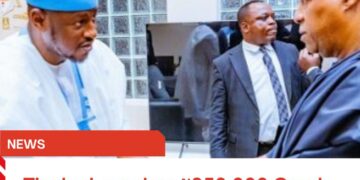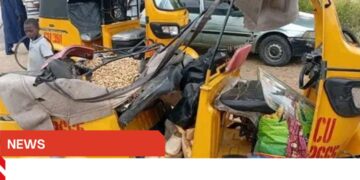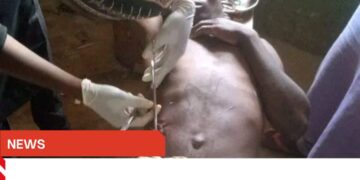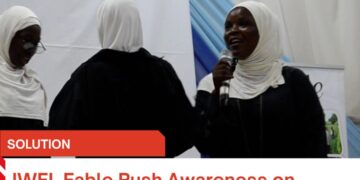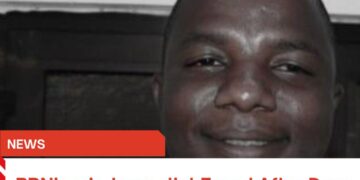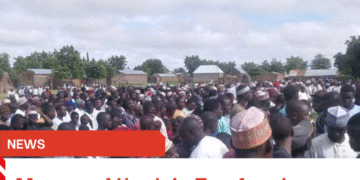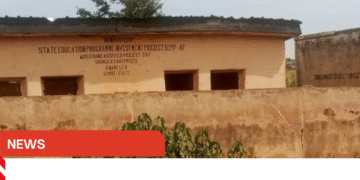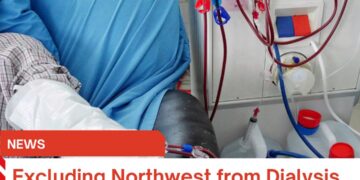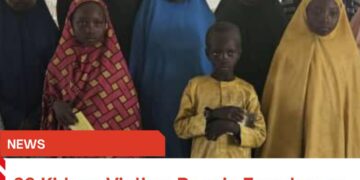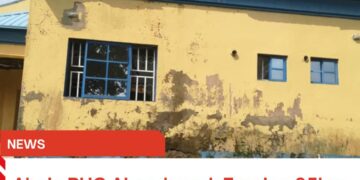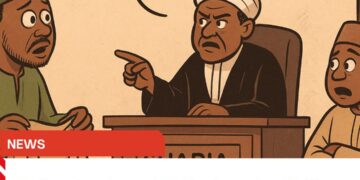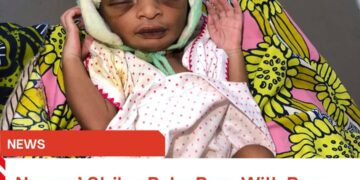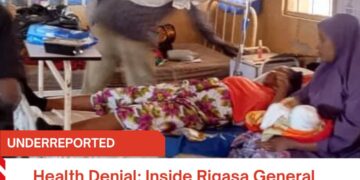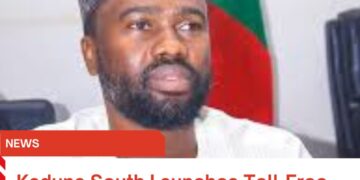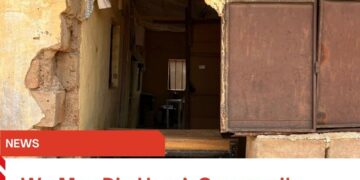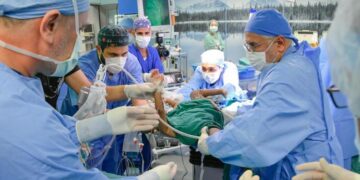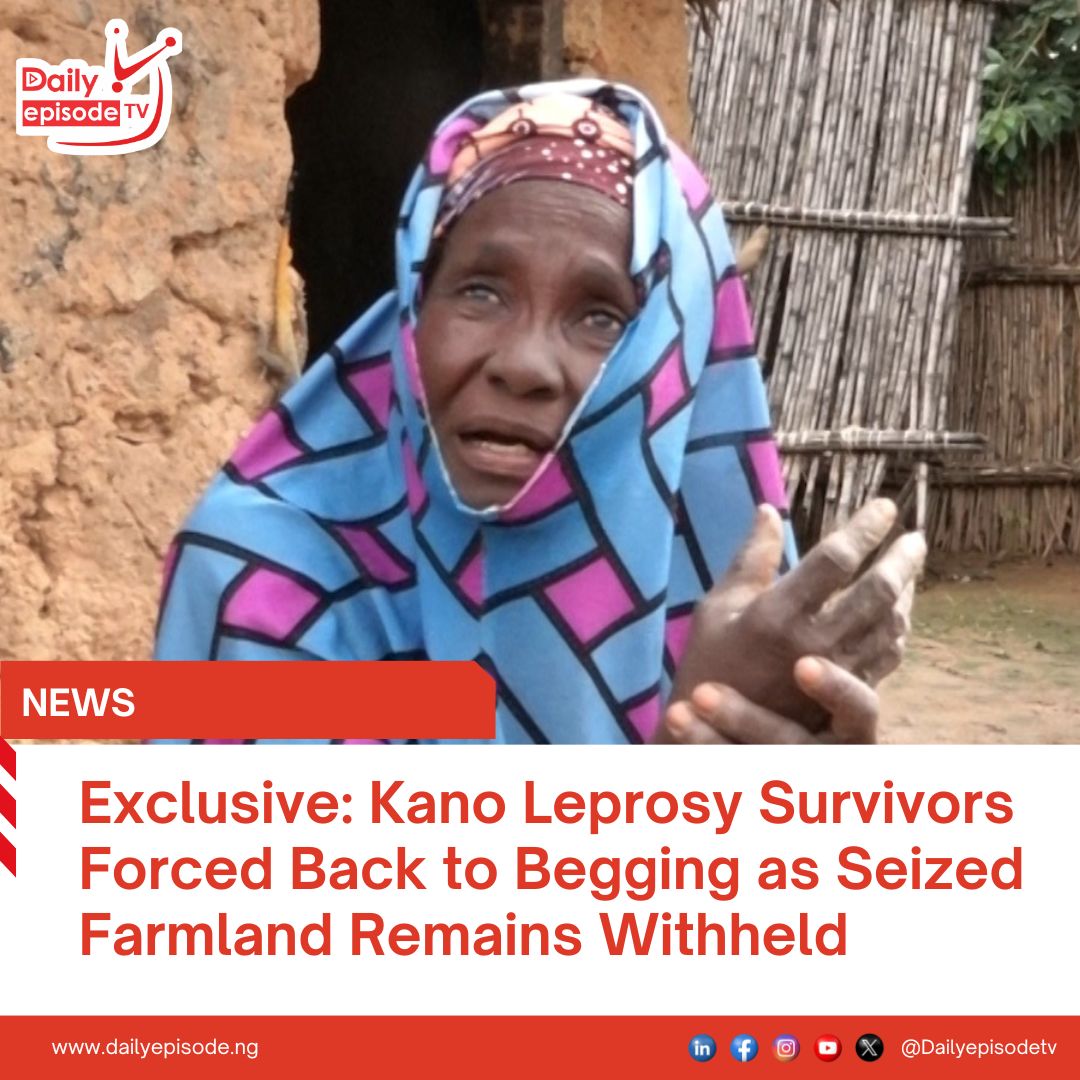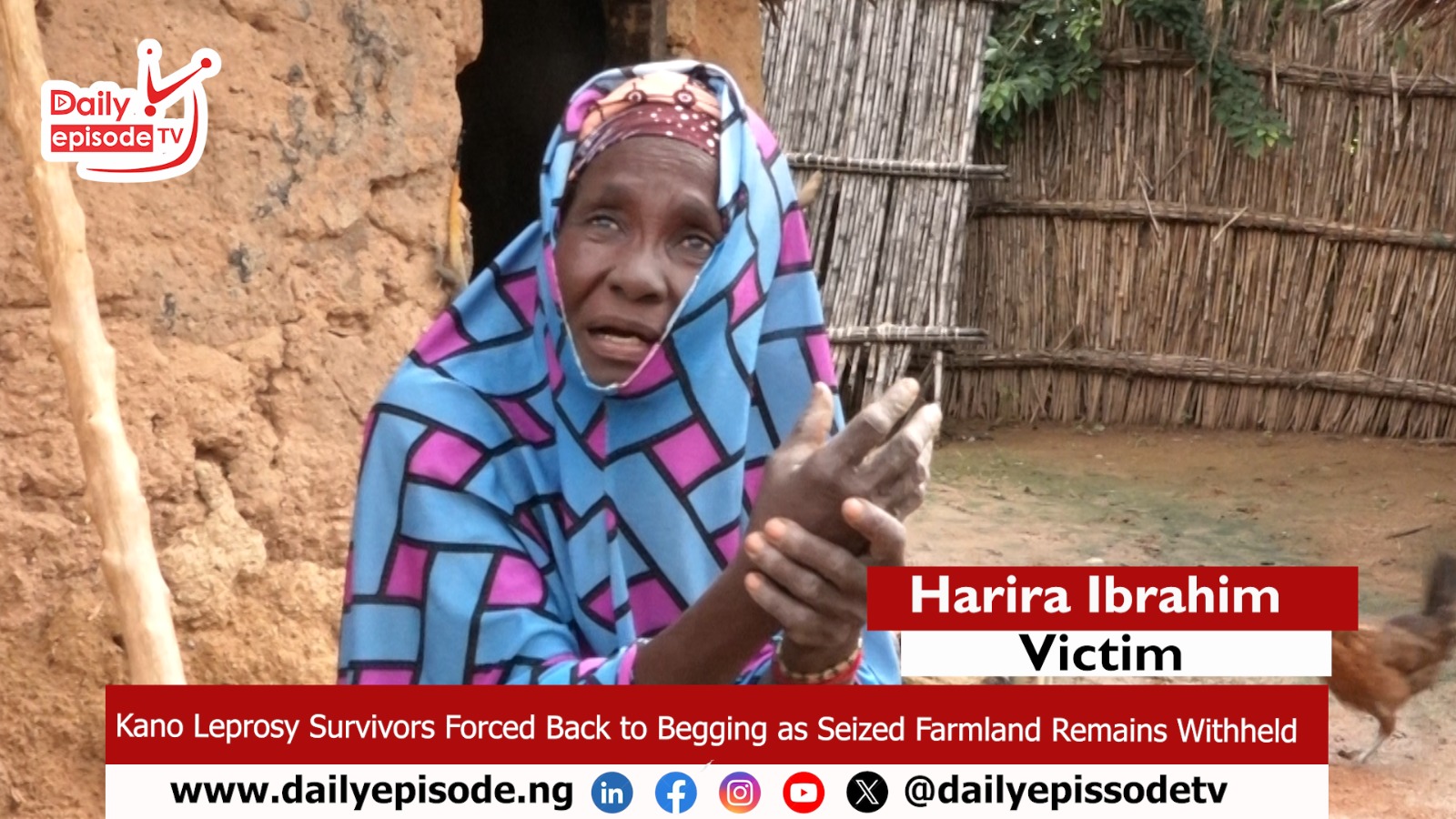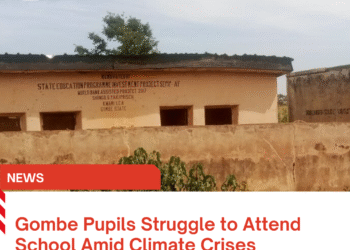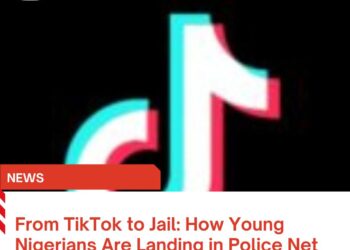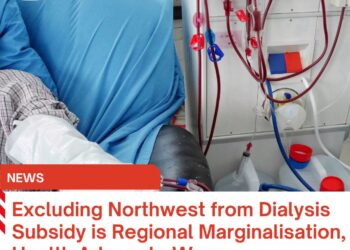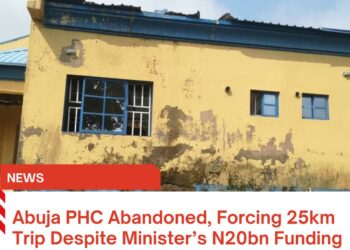Kano, northwestern Nigeria— We are hopeless; what used to be our only and major means of livelihood, “our farmlands”, has been taken without considering our vulnerability. For about 3 years now, we have suffered from hunger and the poverty we never imagined experiencing as a consequence of this inhumane seizure. Harira Ibrahim, an 80-year-old leprosy survivor, stated in tears
“We came to Yadakunya for medication about 54 years ago, and then with nothing but only sickness, we survived because the government had put aside every interest and prioritised the well-being of its citizens, unlike today, where everything turns otherwise.
“It’s very common to know what we went through during the days of our sickness; my husband nearly committed suicide because of the stigma. We were called names, but all that became history since we were given a space we cherished as heaven, this isolation center where every occupant shares similar health issues, including deformity.
“Adding to that, we were also given hectares of farmland for self-reliance. Do you know we never go out begging because we have always stocked our store with foodstuffs? Harira? She asked emotionally, in tears.
“But today, we are what the society wants us to be: beggars with deformities. They called me “Kuturwa and my husband Kuturu.” If the government hadn’t seized our farmland, who would even have the audacity to call me that?
Our farm, located in Riverine has been seized. Before its seizure, we normally paid some people in the Hayin Ruwa community who usually hired labourers to help us clear, cultivate, and harvest.
As it is now, my husband can’t even hold a hoe to farm or work on the farm; he can’t because he has not a fingers to farm.
Therefore, begging is our only alternative; as for me, I can’t even go out due to my health conditions. Harira added.
No Farms, Their Survival Relies on Begging
Like Harira, Bala Adamu, who’s more of a village head in the isolation center, told Daily Episode reporter that their current situations are something he never imagined he would witness in his life.
According to Bala, “I was given both my farm and house by the missionaries even before the government took over the affairs of this hospital from them.
“This was about 58-59 years ago. After my recovery, I was maintained as a staff member who went in search of people with leprosy infections, house to house, sometimes even interstate, and we were paid handsomely.
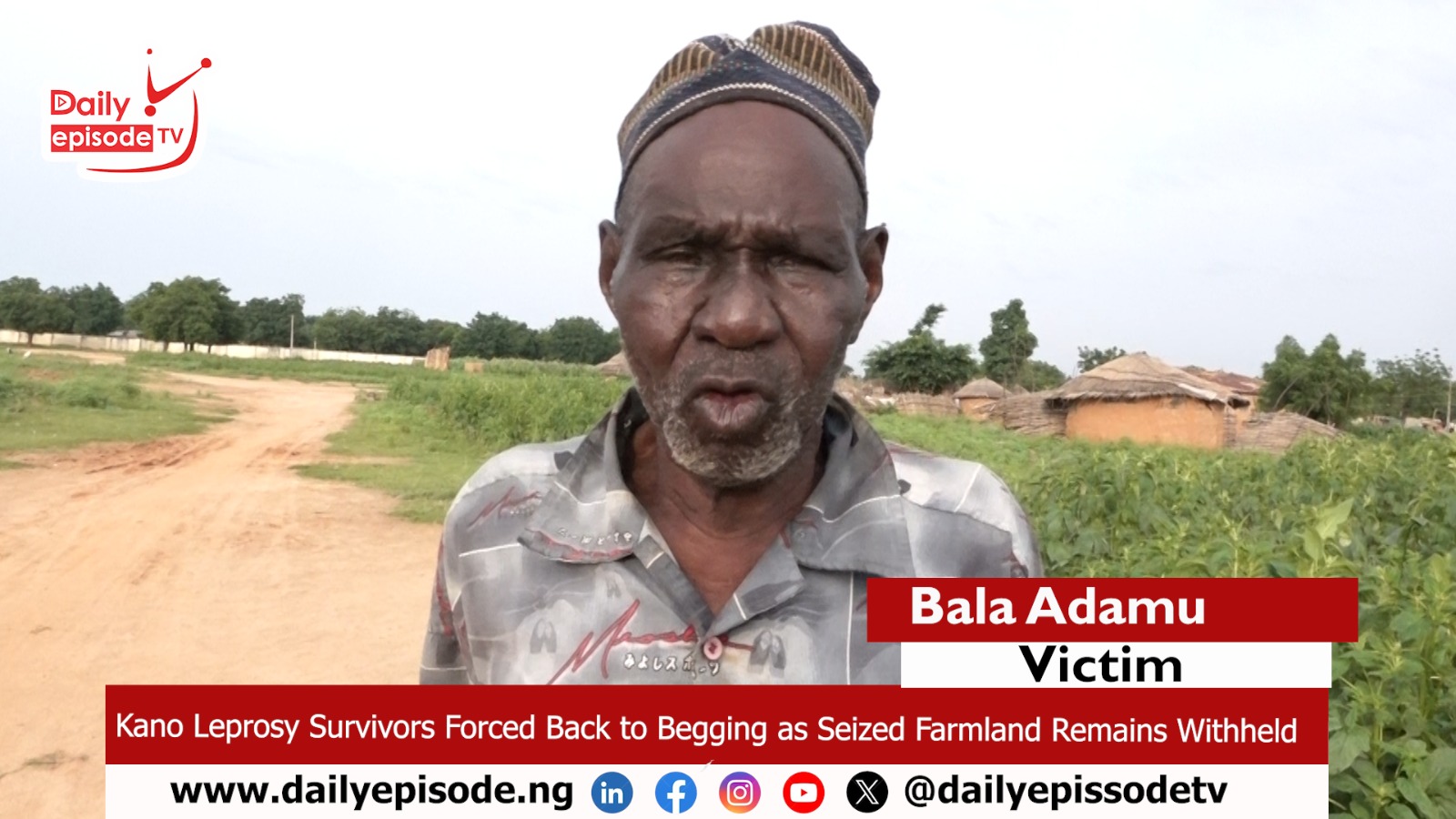
“I served until my retirement, when I was later re-diagnosed with leprosy.
“But, to cut the story short, in my 58 years in this community, I have farmed continuously for 55 years, until two years ago when my farm was seized.
“Now I only farm inside my house and depend on my children, with some little philanthropics shared with us.
“Even our houses, if not for your earlier report, which made the government reclaim the lands from the grabbers, by now you wouldn’t have met me here, because my house was also shared as plots of land.
Government Fueling Street Begging; Health Personnel Decries
In an interview with Daily Episode, Salisu Muhammed, a medical person and the deputy director at the Yadakunya General Hospital (Asibitin Bela), questions the government’s commitment to eradicating street begging in Kano.
According to Mr. Salisu, for the government to curtail begging in the street and/or any public setting, it requires commitment with objectivity.
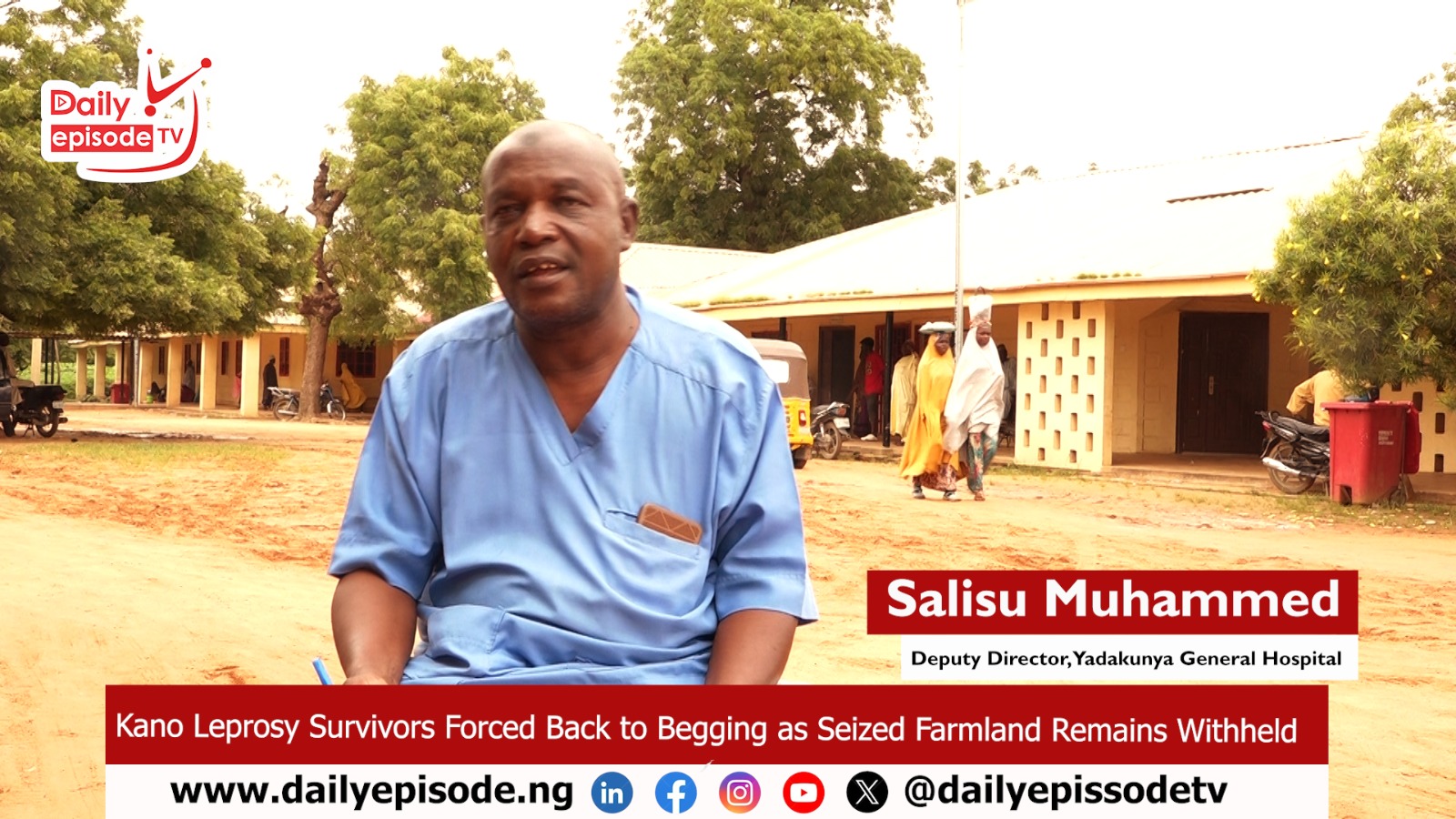
The farmlands belonging to these leprosy survivors have been allocated to some individuals; most of them don’t even know where to go or where to start from.
In Kano, the solution to begging for these vulnerable groups is simple; right from inception, the government provided accommodations and farmlands to them.
“It is, however, advisable to maintain the status quo, return the farmland that was reissued to some individuals, and halt any moves to revoke the land marked as an isolation center, because the farmland serves as hope for self-reliance to the leprosy survivors and victims.
Surely, it will help in reducing the menace of begging across the state. Mr Salisu added.
Target on the isolation center
Before the farms, their house was the first target, which was allocated and shared as plots of land.
Malam Sule Garko, among the leprosy survivors, told Daily Episode that one night, sometime in 2023, they woke up in the morning to see some people in the company of their village head, Malam Murtala, who identified themselves as officials from the state government, marking plots of land in their houses.
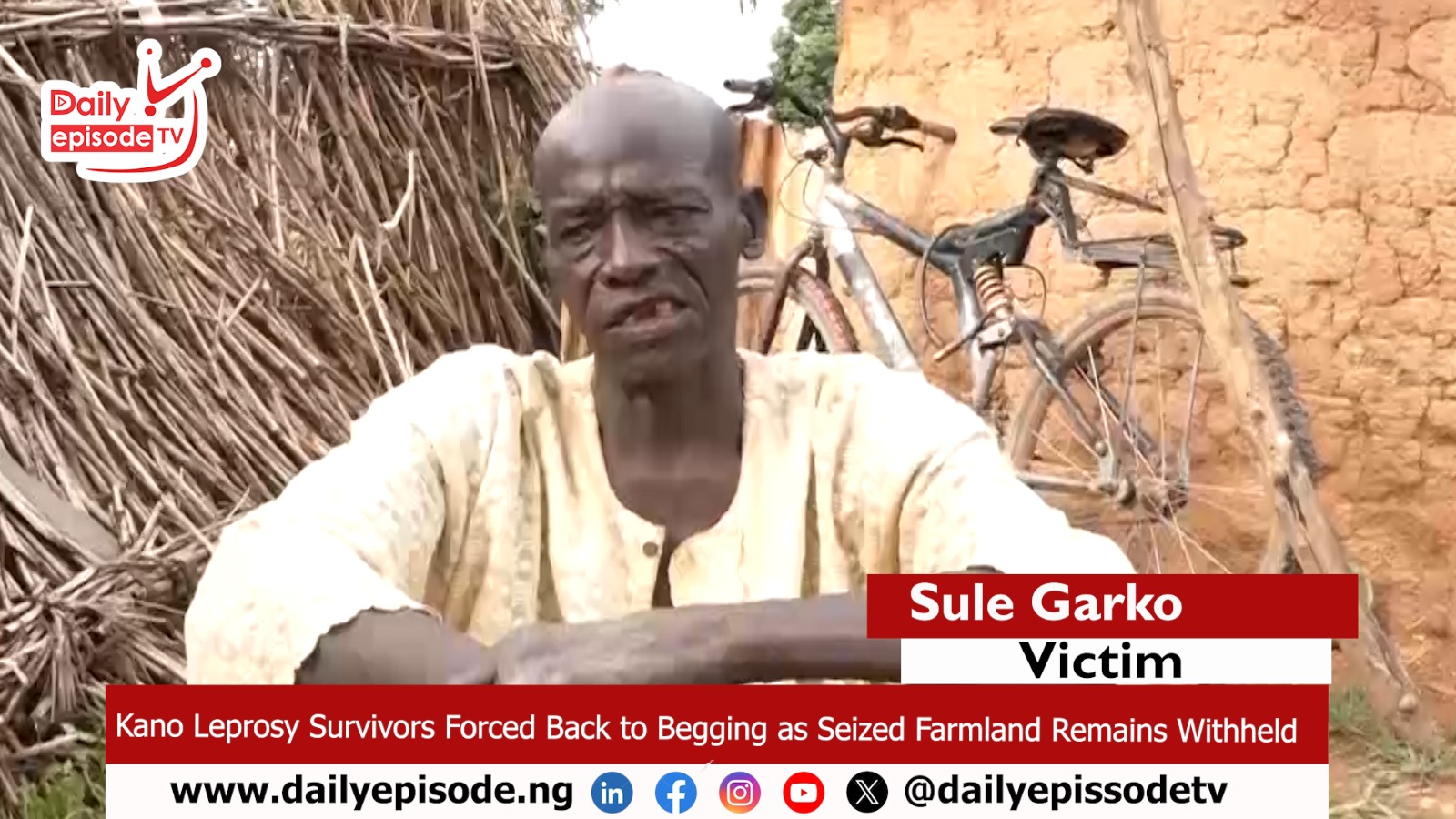
“While we asked them questions, they served us with a quick notice that indicated that we were to vacate within two months and that the government had allocated another place for us.
“We were helpless; all we could do was only cry and pray.
“They threaten us, abuse us, and call us names, saying we must vacate, but as Governor Abba Kabir emerges, he promises us nothing will happen to us; still, they continue to threaten and bully us.
“One night, they set ablaze the house of our leader. During the last Ramadan, we were able to manage the fire through a collective effort,” Garko alleges.
Like Garko, Harira Ibrahim also shares a similar experience. In Harira’s narration, “One day, some people stumbled into our community, asking us to vacate our houses, notifying us that our farms also no longer belong to us.
“They forcefully tried to send us out of the house, which we resisted and refused. Next, they began cutting down all the trees, claiming that people with leprosy cannot survive under the sun or in hot weather.
“Despite the harshness of the weather after they cut down the trees, we didn’t leave because we don’t have anywhere to go. People in the town won’t even give us accommodation because of the stigma,” she said.
Property Doesn’t Belong to Them—Village Head
After the allegations by the survivors, pointing at the village head’s involvement in the land grabbing, Daily Episode interviewed Malam Murtala, the Yadakunya village head, about his role.
Mr Murtala denied his involvement in the act, but his submission regarding the sale of the farmlands and the isolation center is questionable.
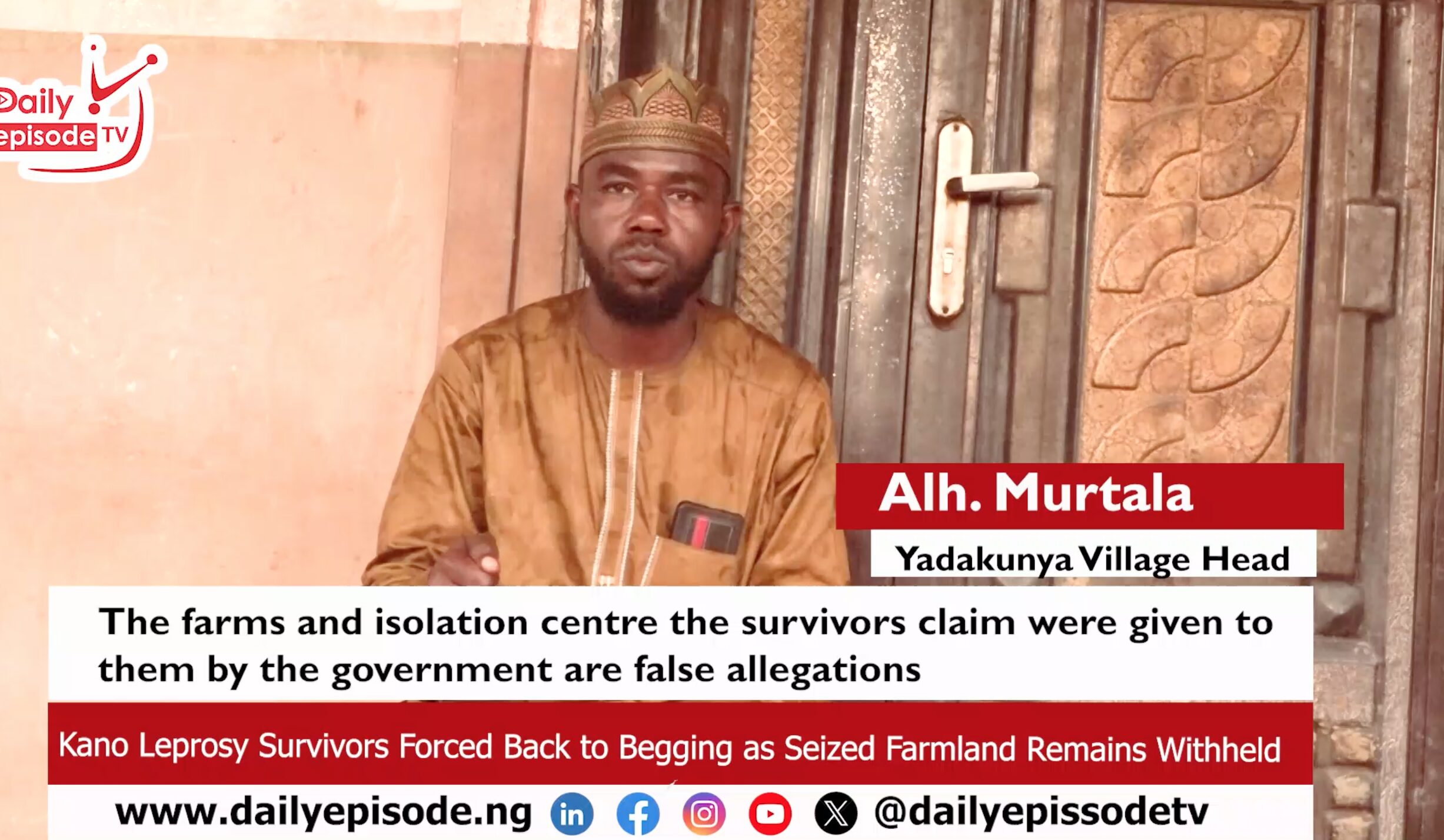
According to him, the properties were given to them as temporary, so the rightful owner, the government, now retakes what it gave as temporary; nothing different from that, Murtala maintained.
Revocation and re-issuance of the isolation center after Daily Episode’s letter
While balancing this story, the reporter had to formally visit the Kano State Ministry of Land and Physical Planning, requesting to interview the commissioner.
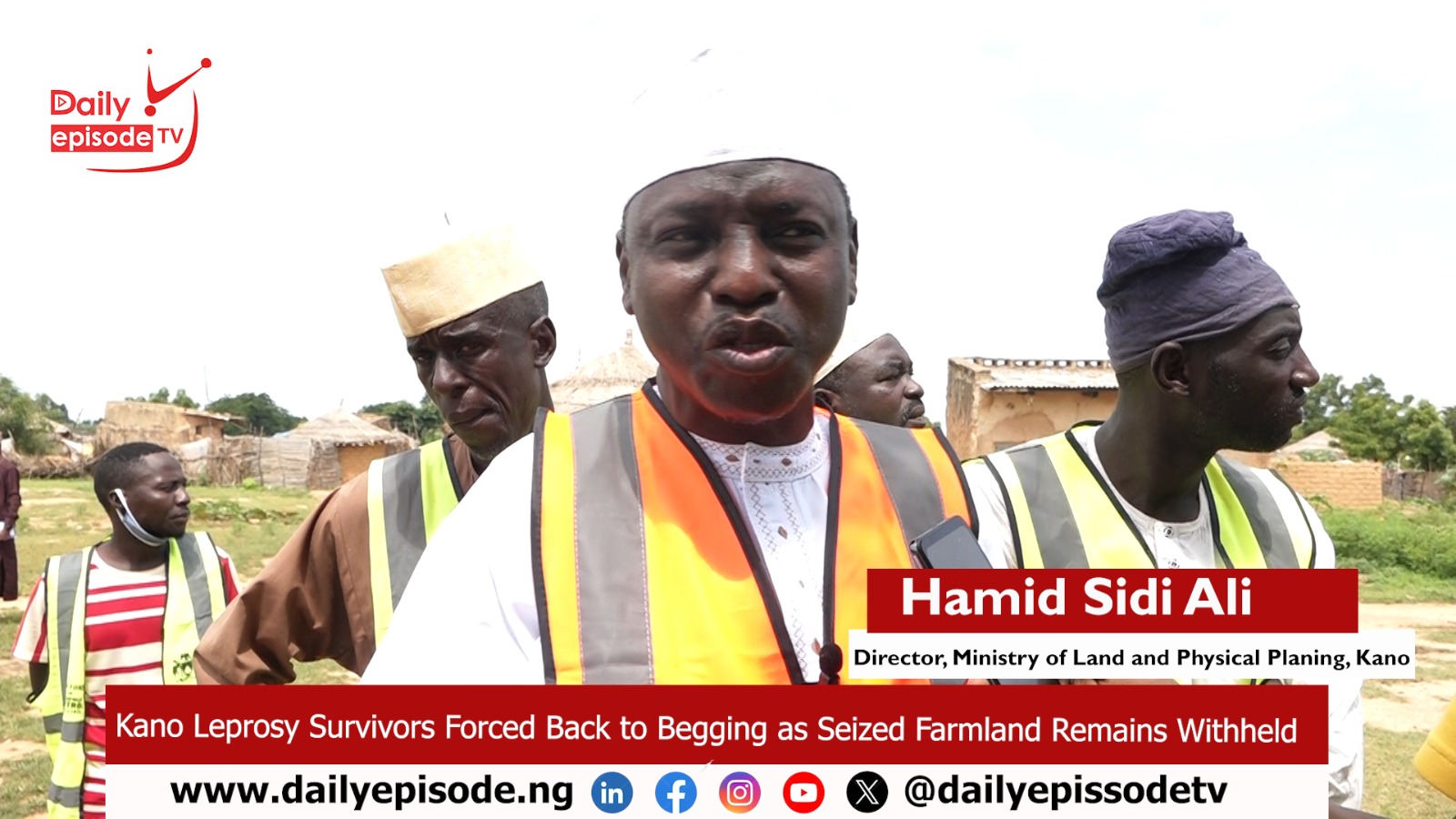
In the absence of the commissioner, he was referred to a director, Alh Hamid Sidi Ali, who requested details of the isolation center and the farm in writing and promised to investigate and respond back to the reporter.
As promised, he called the reporter, headed to the Yadakunya community, and reclaimed the isolation center, dismantling all the signs of demarcation, where he disclosed the property had fully returned back to the hospital, meaning the survivors are now the rightful occupants as earlier designed.
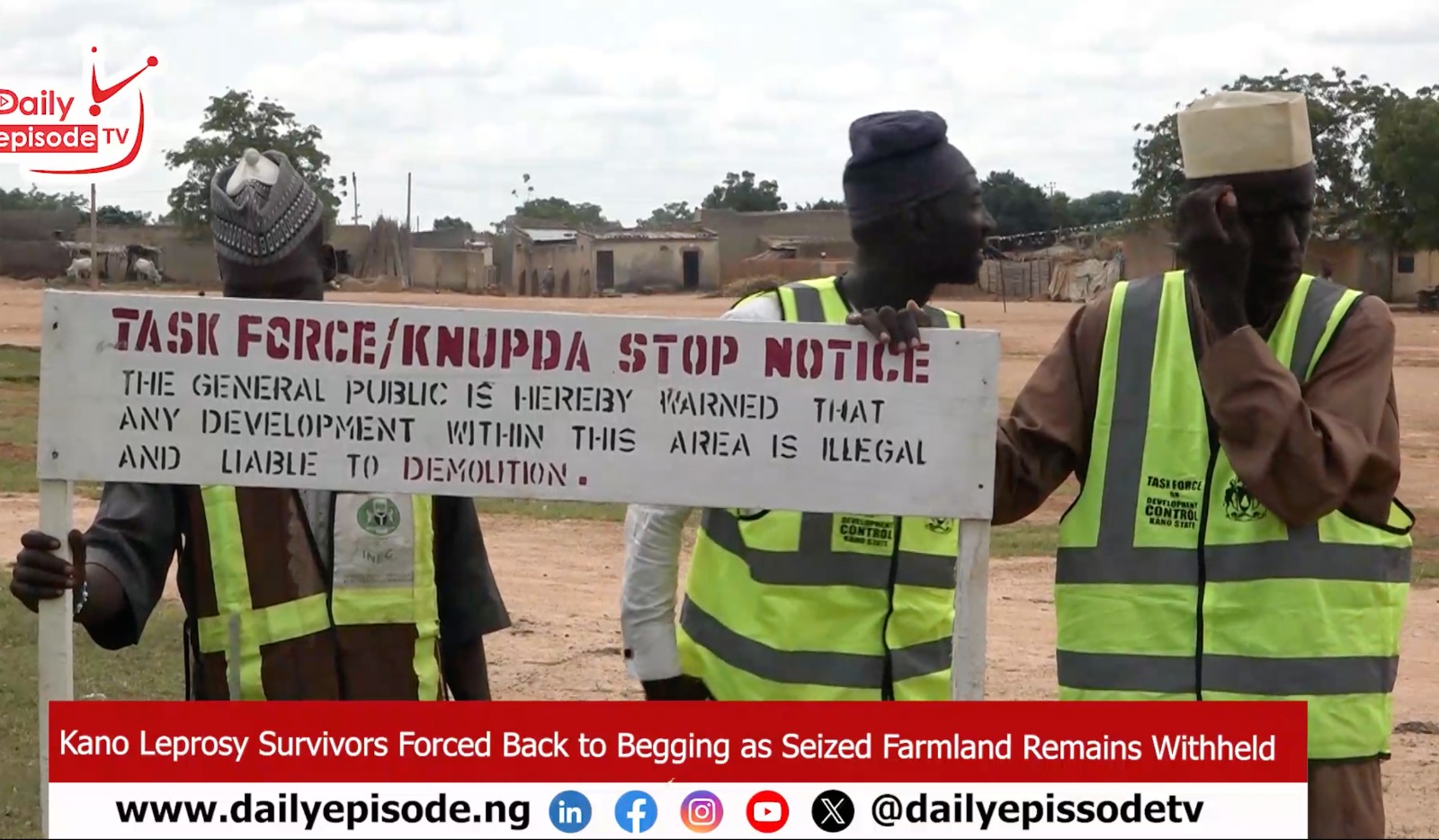
The survivors rejoiced at the decisions and thanked the government for their swift intervention.
However, what’s left is their farmlands, which are yet to be revoked and reissued back to them.
Medical Expert Warns Against Reintegration of Leprosy Survivors, Urges for Isolation Center Maintenance
Professor Dahiru Rogo of Bayero University, Kano, urges the government to maintain the isolation center and ensure the survivors remain there for public health.
In his statement, Prof. revealed that it’s dangerous to send them back to society, as they may contain some leftovers of the infection, which poses a threat of possible spread of leprosy.
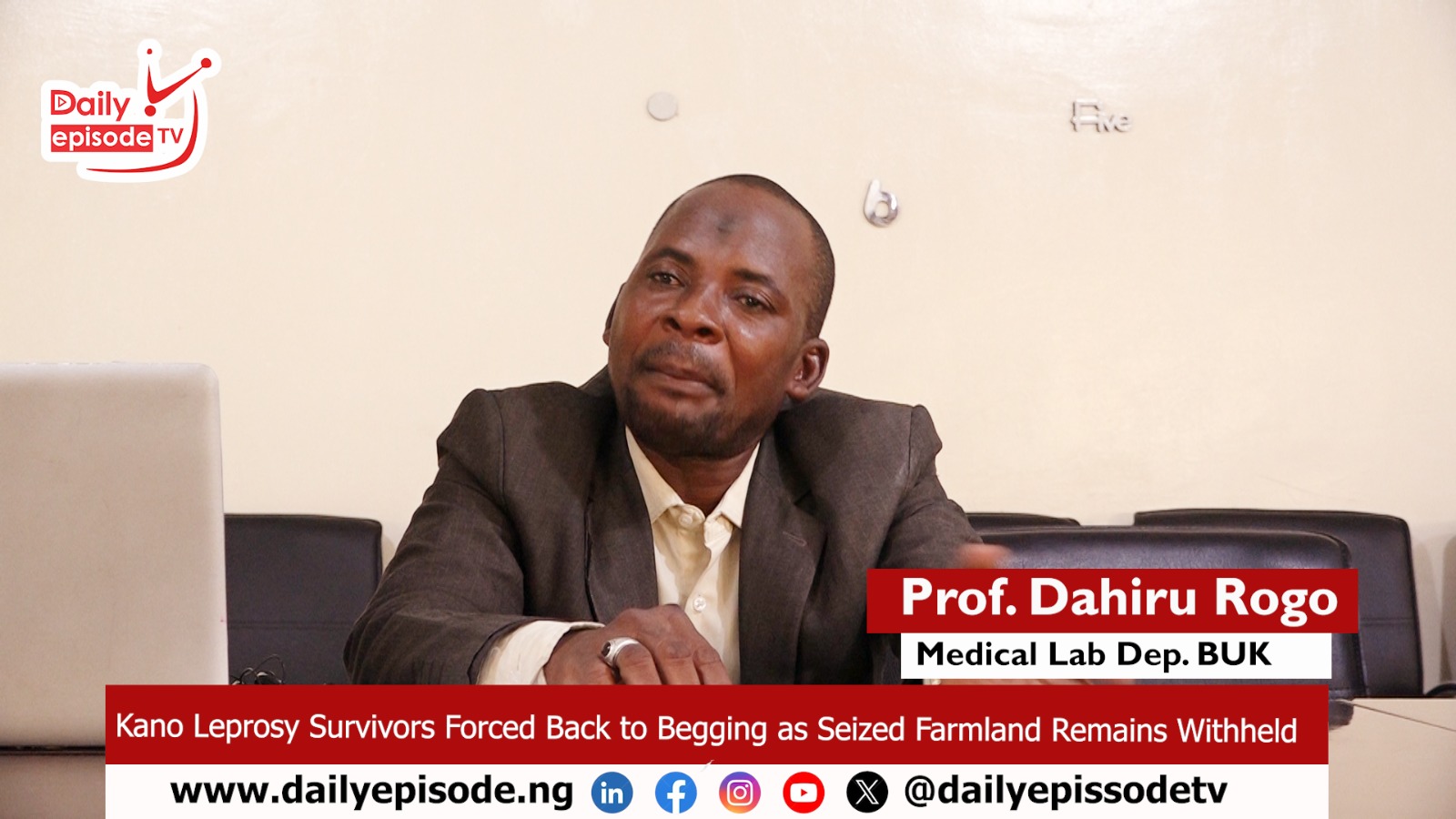
It’s mostly spread via skin contact, but if the government is satisfied they are all free from the infectious disease, it can reintegrate them, but a simple mistake of reintegrating anyone with a leftover of the bacteria may spread it to a larger group.
This investigation was supported with funding from the Centre for Journalism Innovation and Development. It was produced under the UDEME Accountability Fellowship.
LIKE & FOLLOW US ON FACEBOOK, X, INSTAGRAM, LINKEDIN & YOUTUBE


